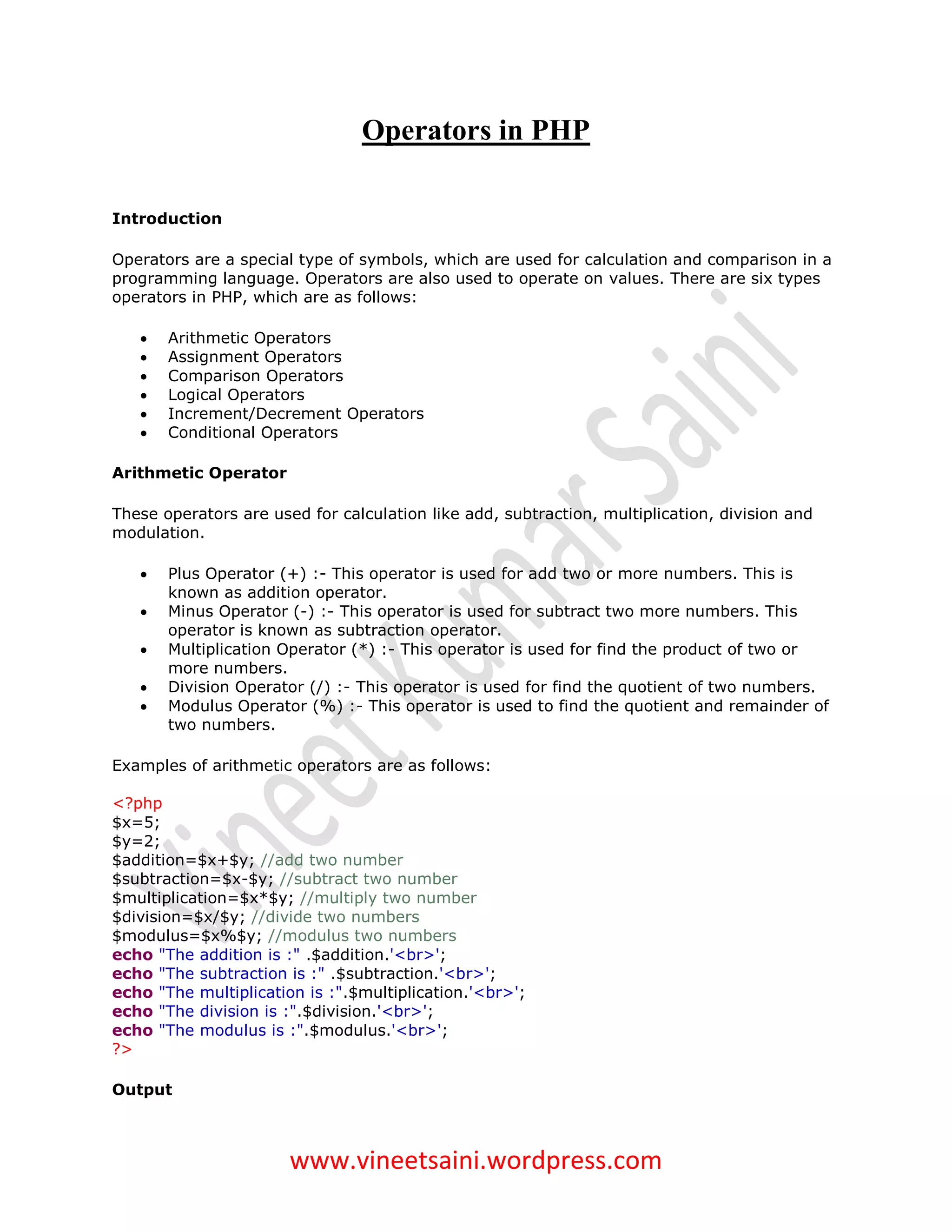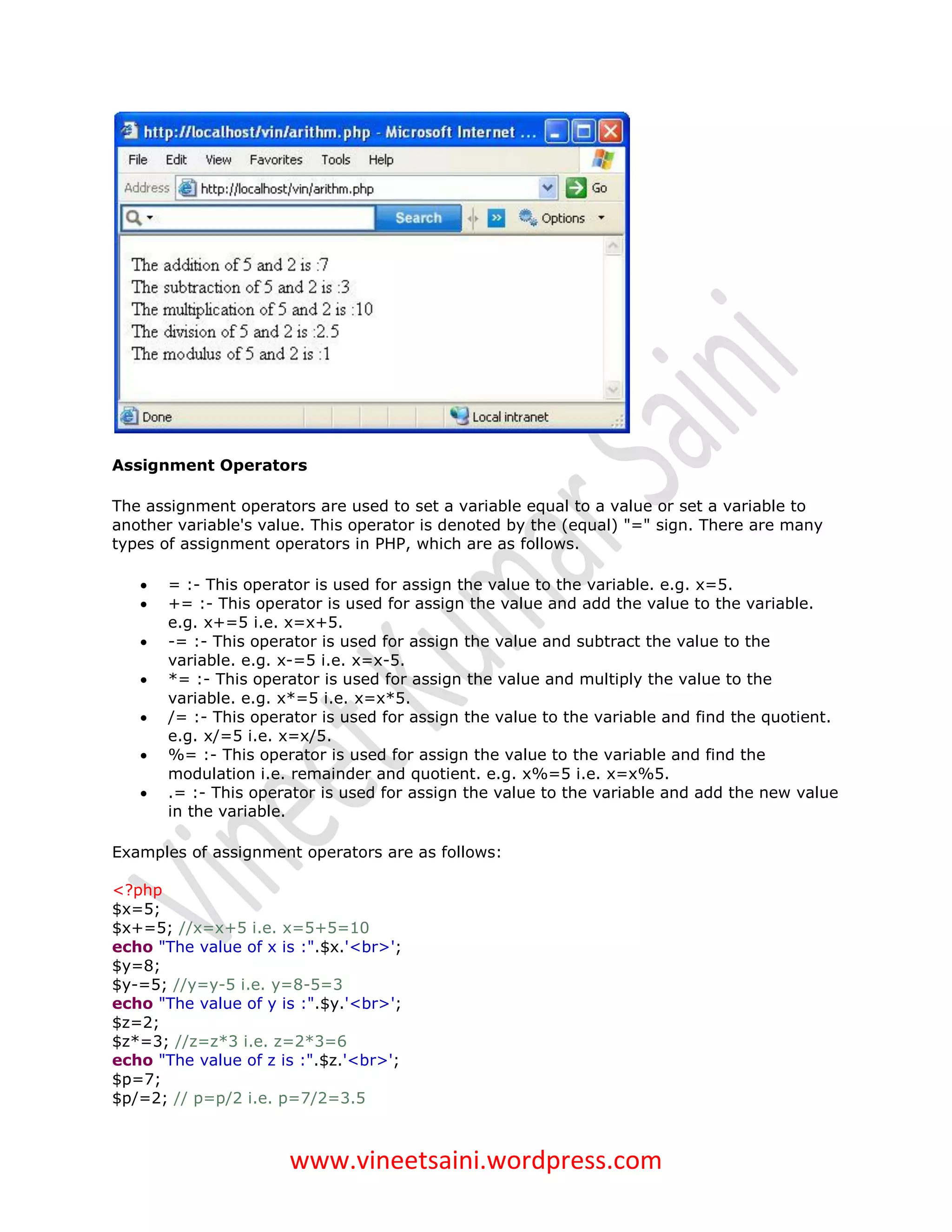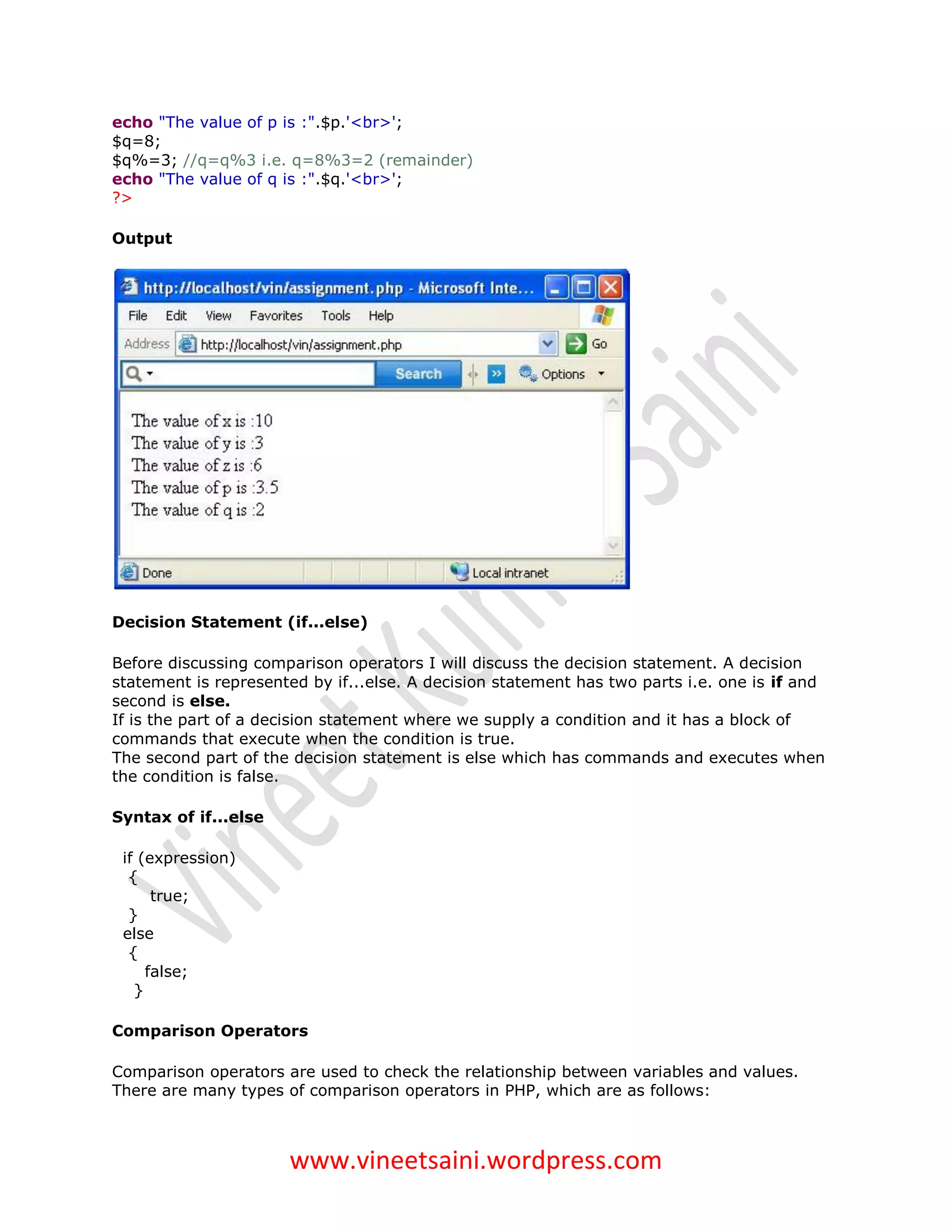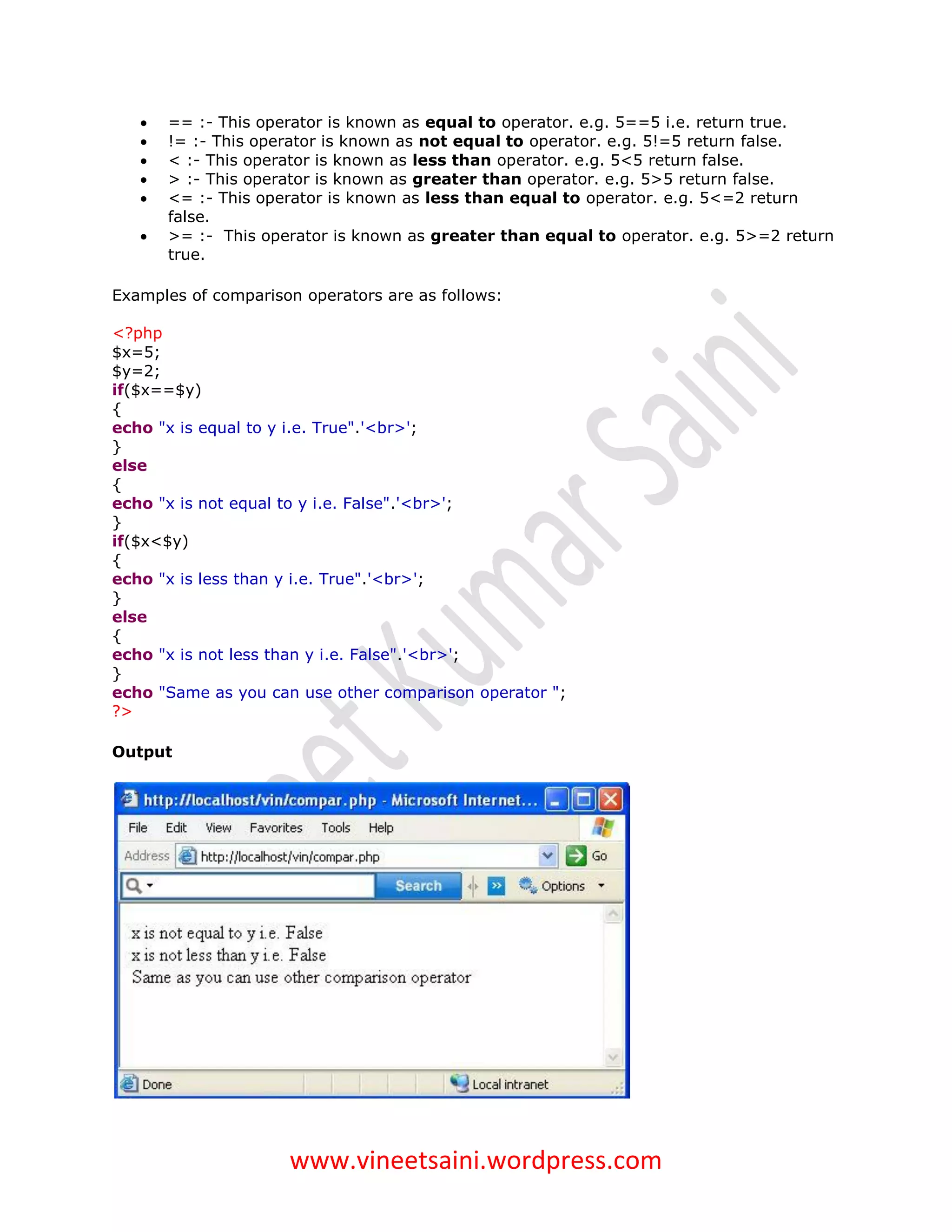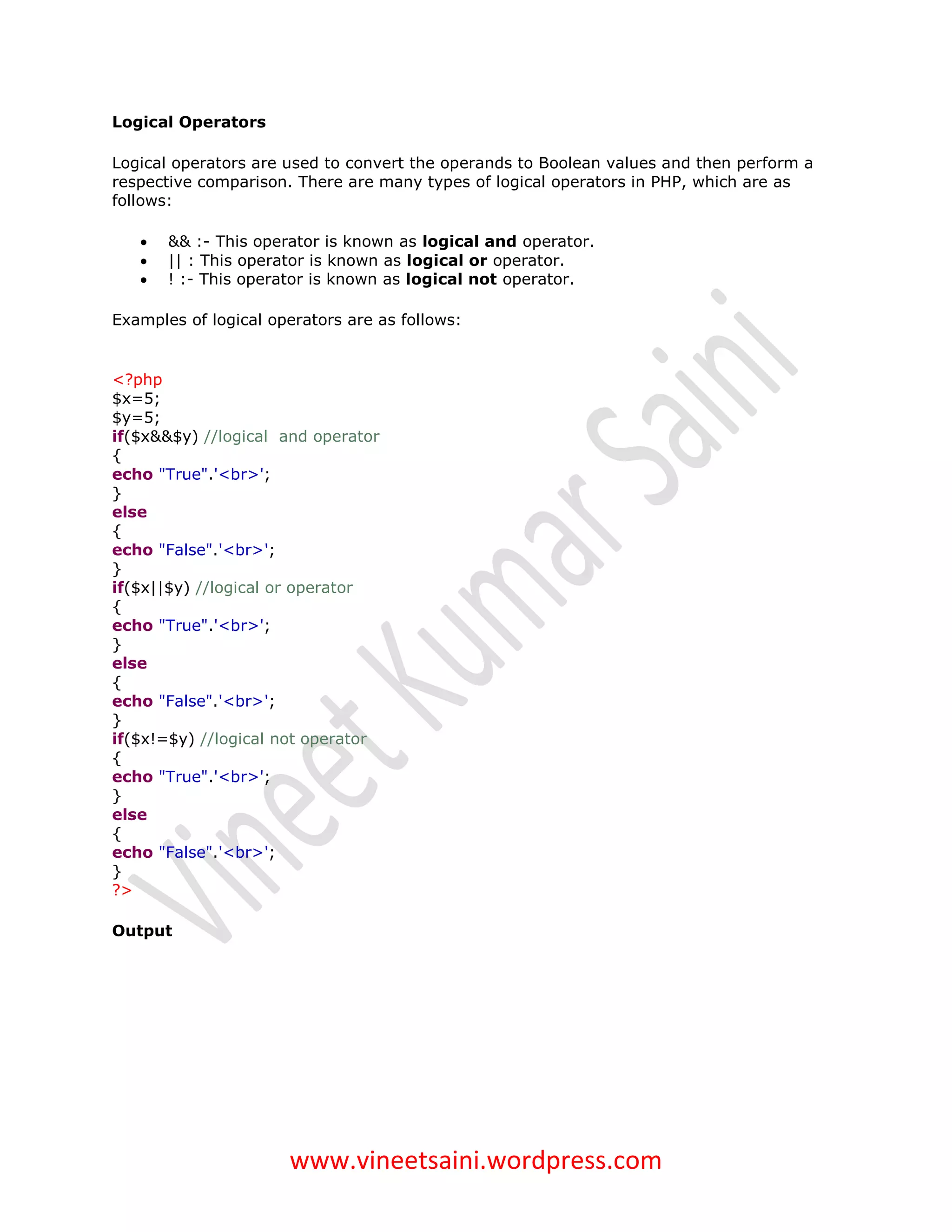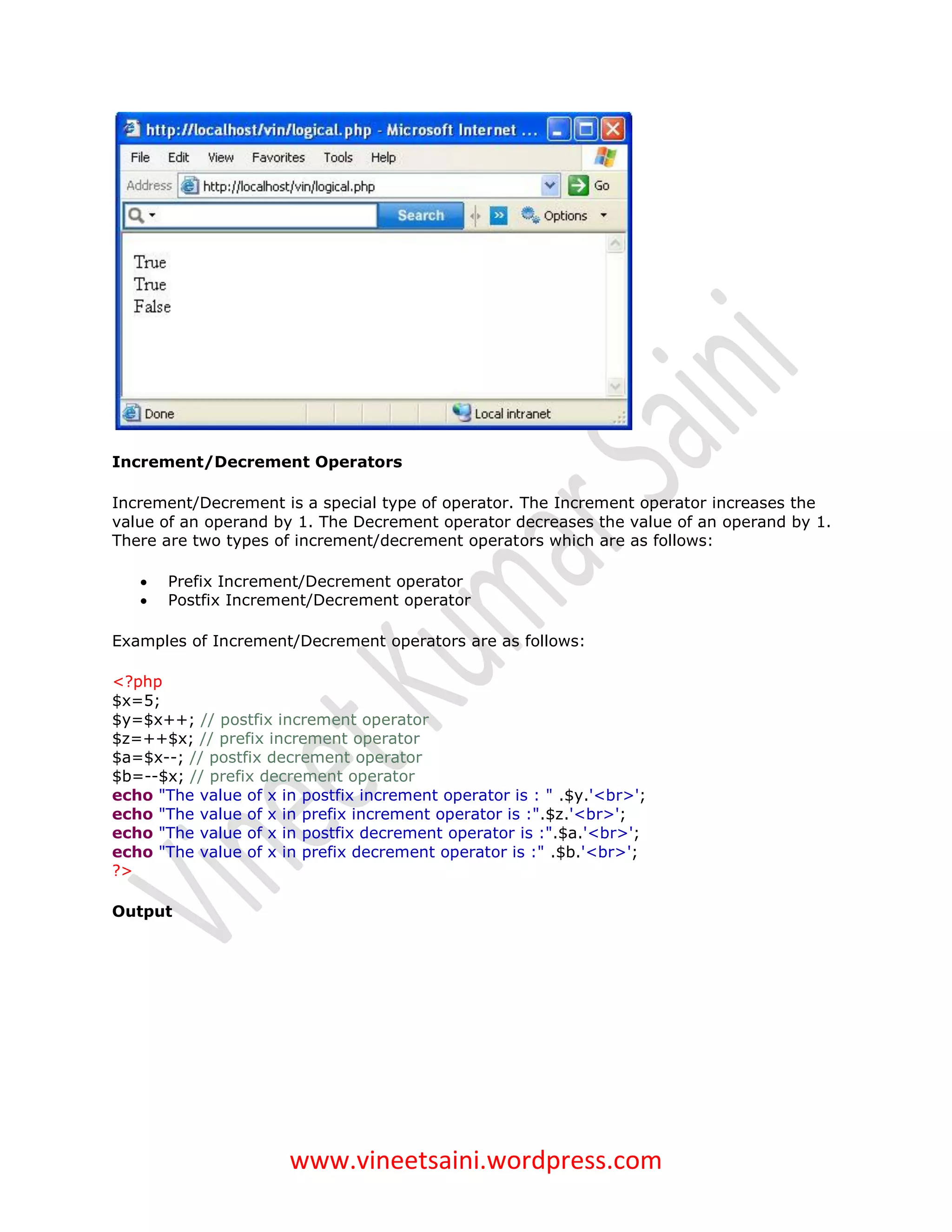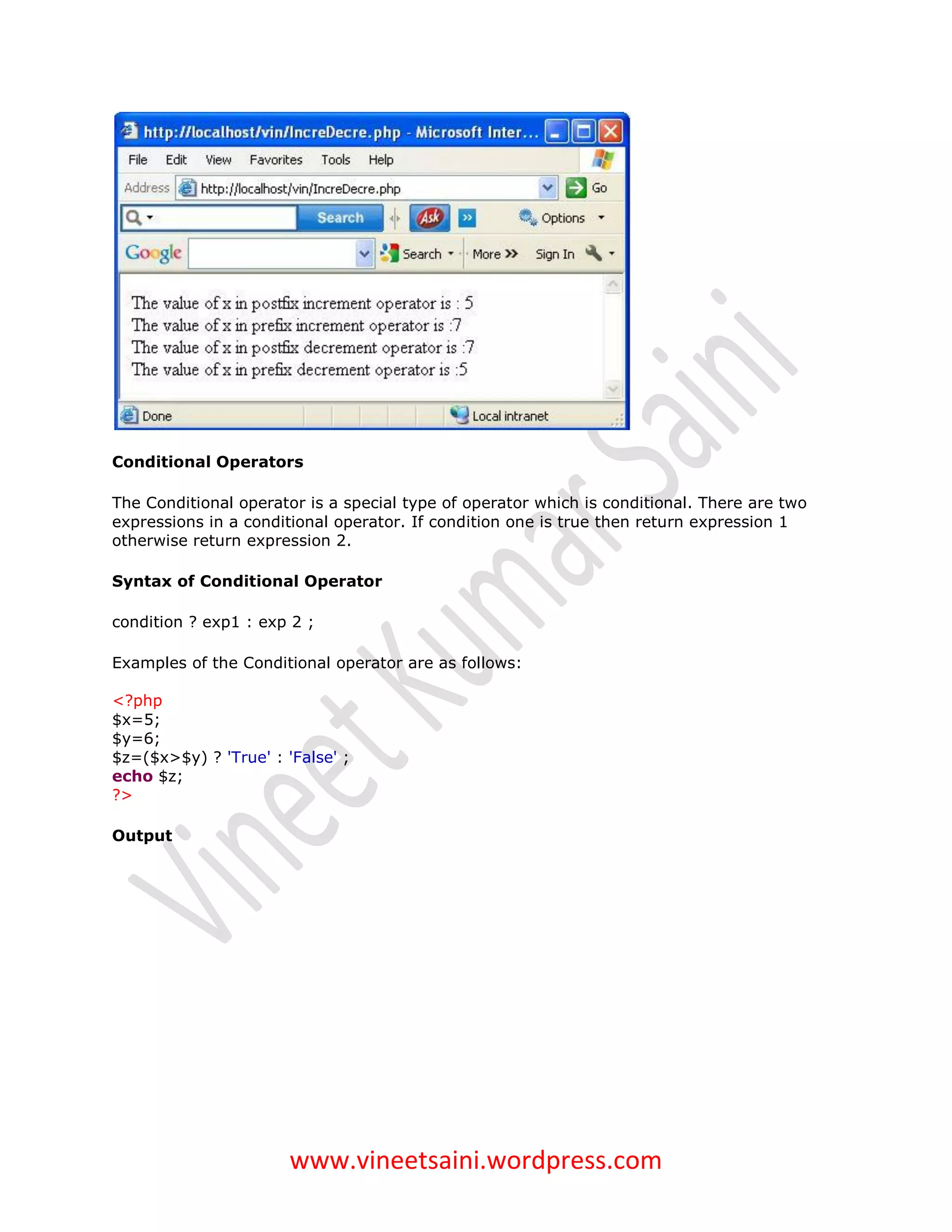The document discusses the different types of operators in PHP including arithmetic, assignment, comparison, logical, increment/decrement, and conditional operators. It provides examples of how each operator is used and the output. The key operators covered are addition, subtraction, multiplication, division, modulus, equal, not equal, less than, greater than, logical and, logical or, increment, decrement, and ternary conditional operators.
